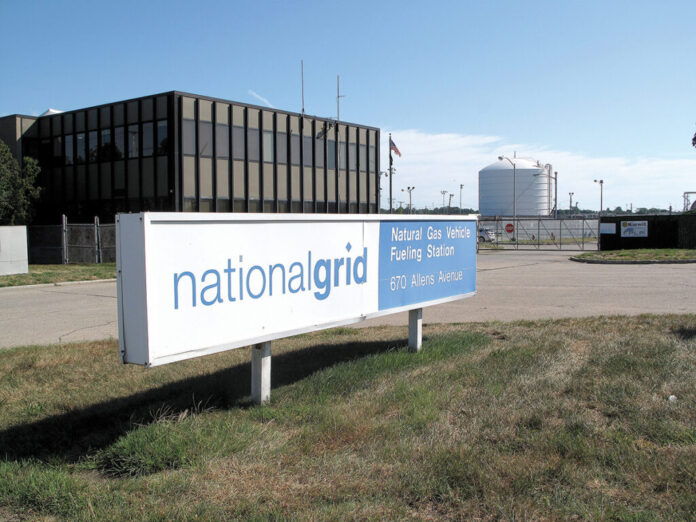
PROVIDENCE – National Grid Rhode Island customers already feeling the burn of higher winter heating costs could see their bills go up again in the new year under two proposals submitted to state energy regulators.
The Nov. 19 filing to the R.I. Public Utilities Commission calls for increasing rates for natural gas usage for a 10-month period beginning Jan. 1. As proposed, the average residential customer who uses 689 therms of gas heat would see their bill increase 5.2%, or $61.67, over 10 months.
The proposed Interim Gas Cost Recovery filing comes one month after a prior set of rate hikes, which increased customers’ gas bills by 6.8% as of Nov. 1.
Since then, energy prices have risen drastically, with November forecasts by the New York Mercantile Exchange now more than 36% higher for peak winter months than what was expected in August, according to National Grid’s filing to the commission.
Add in new federal settlements raising the tariffs charged by several major gas pipelines, and National Grid is now projecting a $19.2 million shortfall – or 11.5% of its annual gas revenue – if it doesn’t raise rates again, the company stated in its filing.
And that’s not the only potential increase in store for customers’ utility bills. In a separate filing, the company has proposed increasing both gas and electricity rates to help pay for its energy efficiency program.
According to National Grid’s 2022 Energy Efficiency Plan, the average residential customer would see their gas and electric bills increase by 2.2% and 1.3%, respectively, beginning Jan. 1.
Taken together, the two rate increases translate to a 7.3% hike in the gas bill for an average residential customer, or $82.80, for the 10 months beginning Jan. 1, according to analysis by state energy regulators.
However, the commission has yet to approve either proposal, and it appears neither will take effect by Jan. 1. At a meeting Monday afternoon, the commission unanimously voted to suspend National Grid’s Interim Gas Cost Recovery Filing, with plans to hold hearings on the proposal in January before making a decision.
Chairman Ronald Gerwatowski, who made the motion to suspend the proposed rate hikes, said that there were still requests for information and data needed for regulators to make a decision. He also said the Nov. 19 filing date was not enough time before a Jan. 1 implementation.
National Grid in its filing noted that delaying the start of its proposed rate hikes would mean an even higher increase in customers’ gas bills in order to fill its budget gap in a shorter period of time. Raising rates effective Feb. 1, for example, would translate to a 6.5% increase in the average residential gas bill rather than the 5.2% if the higher charges started Jan. 1. A March 1 implementation would increase the average residential customer’s bill by 8.9%.
In response to a request for comment on the commission’s decision Monday, Ted Kresse, National Grid spokesman, said in an email, “While we had hoped our filing might have been able to have been effective Jan. 1, which would help spread the additional bill impacts across 10 months as opposed to nine months, we respect the commission’s decision to have more time to review the filing. We look forward to answering their questions.”
Hearings on the 2022 Energy Efficiency Plan are slated to continue through December and January.












